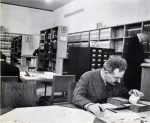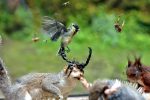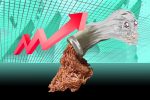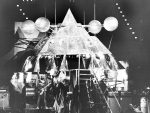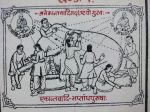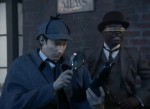Bookclub #9
Close Reading Session with Caroline Godart and Marialena Marouda
Language as Magic and the Language of Things
Walter Benjamin’s “On Language as Such and on the Language of Man”
“To whom does the lamp communicate itself? The mountain? The fox?”
In the essay “On Language as Such and on the Language of Man” Benjamin proposes a language metaphysics that extends to every thing. Every thing has a language: objects, animals, human beings but also immaterial things, like the Arts or Technology. For Benjamin language is therefore a medium going very much beyond human language and the communication through words. One could say language is the way in which some thing – indeed every thing – communicates itself to the world.
During this morning session we will read Benjamin’s text on the metaphysics of language by using the method of the feminist close reading. By encountering the text in such a way we will try to unfold concepts such as the magic in language and the language of things.
Caroline Godart holds a PhD in Comparative Literature with a concentration in Cinema Studies from Rutgers University (USA), where she studied under the direction of Elizabeth Grosz. She is now an Assistant Professor of Communication, Germanic Languages and Cultural Studies at IHECS (Institut des Hautes Études des Communications Sociales, Brussels) and a Scientific Collaborator at the Université Libre de Bruxelles (ULB). Her first book, The Dimensions of Difference, was published by Rowman and Littlefield in 2016. It explores the question of difference, and in particular of sexual difference, through three axes (space, time, and embodiment), which are approached both as aesthetic devices and as philosophical concepts in the works of Luce Irigaray, Gilles Deleuze and Henri Bergson.
http://www.rowmaninternational.com/books/the-dimensions-of-difference
Marialena Marouda works in the fields of performance art and choreography. She studied philosophy and visual arts at Columbia University in New York, USA (B.A., 2004) and continued her studies at the Institute for Applied Theater Studies at the University of Giessen, Germany (M.A., 2011). Marialena Marouda’s work is focused primarily on the development of performance exercises, self-invented practices for relating to and for inhabiting spaces. The experimentation with walking, listening and storytelling as relational spatial practices forms the basis of her work.
Friday 17th from 10am to 2pm
@ a.pass 4th floor
participation to the costs : 5 euros
